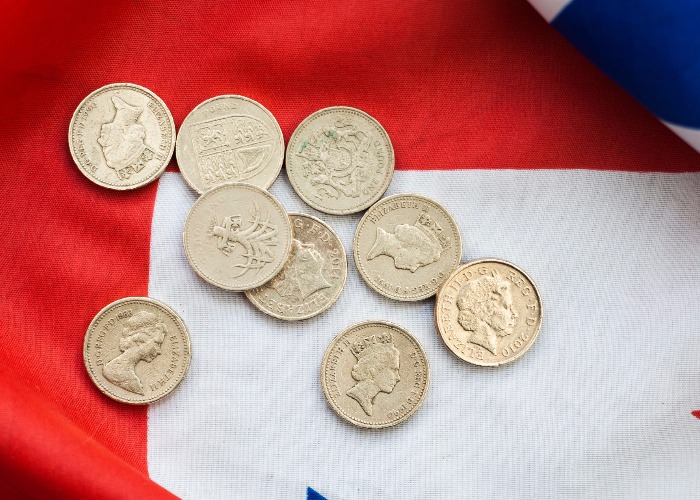Brexit: how have your savings and investments fared since the referendum?

Nine months after the EU referendum the Prime Minister has triggered Article 50 and we are on the path to Brexit. But, how has the historic decision affected your money?
The period since the nation voted to leave the European Union has had a profound effect on our savings and investments.
Some areas have boomed while others have languished. Here we look at the winners and losers so far on the road to Brexit.
Savers hammered since the referendum
Firstly, let’s look at your cash savings. Since June 2016 average cash ISA rates have halved from 0.87% to 0.43%, according to data from the Bank of England.
At the same time the amount of money sitting in accounts earning no interest at all has increased by £13 billion.
The total amount of savings earning no interest is now a whopping £176 billion – a decade ago it was just £22 billion.
“Since the EU referendum, interest rates and inflation have headed in opposite directions, putting even more of a squeeze on cash savers,” says Laith Khalaf, senior analyst at Hargreaves Lansdown.
“Despite rising inflation, weak wage growth means the Bank of England looks in no mood to raise interest rates any time soon, so cash savers are left in the uncomfortable position of watching their money decline in real terms.”
How to beat inflation
In order to minimise the damage inflation is doing to your cash savings, it is more important than ever to make sure your money is in an account paying the best possible interest rate.
There is only one account currently keeping pace with inflation – Milestone Savings five-year bond, which pays 2.3%, but it has a minimum balance of £10,000.
However, if you have a smaller savings pot it is possible to beat inflation by making use of current accounts.
Nationwide lets you earn 5% on balances of up to £2,500 with its FlexDirect account, while TSB pays 3% on the first £1,500 held in its Classic Plus account.
Compare savings accounts and ISAs with loveMONEY
Are you comfortable with risk?
You may want to consider climbing up the risk ladder and moving some of your money into stock market investments in order to improve your chances of a better return.
Since the referendum, “the UK stock market has prospered, thanks in large part to the weakening of sterling following the EU referendum,” says Khalaf.
“While this currency bonanza doesn’t equate to better operational performance from all the businesses involved, it is nonetheless a real and tangible gain for UK-based investors, whose wealth has enjoyed a Brexit boost.”
The UK stock market has risen by 17.8% since the day of the referendum, small caps have enjoyed the best growth, rising by almost 20% over the past nine months.
However, even the worst performing domestic sector – the FTSE 250 – is up 11.3%.
Investment winners since the referendum
Looking at individual companies it is the commodities sector that has really boomed in the wake of the referendum.
“Higher commodity price have led to a strong recovery in resource stocks which make up a large proportion of the UK stock market,” says Khalaf.
Mining companies in particular have had a good time thanks to, “a double whammy of weaker sterling and higher commodity prices feeding into rising share prices,” adds Khalaf.
From ISAs to SIPPs: compare investment products with loveMONEY
FTSE 100 referendum winners
|
Company |
Price change between 23 June 2016 and 28th March 2017 |
|
Glencore |
103.7% |
|
Antofagasta |
81.4% |
|
Anglo American |
75.4% |
|
Burberry Group |
56.4% |
|
Rio Tinto |
54.1% |
|
Ashtead Group |
53.5% |
|
HSBC Holdings |
44.2% |
|
Coca-Cola HBC AG |
43.6% |
|
Smiths Group |
42.4% |
|
Mondi |
42.0% |
Investment losers since the referendum
At the other end of the market, there are some sectors that have really suffered in the wake of the referendum.
“Real estate companies are the most obvious casualties of the Brexit vote,” says Khalaf, “pushed lower by doubts over the UK property market, particularly in London.”
Other companies have been affected by sterling weakness and rising inflation.
Brexit worriers can’t be entirely blamed for the woes of the companies that have reported the worst performance over the past nine months.
Many of them have problems that are unrelated to Britain’s position in the EU.
For example, Next and EasyJet have also been affected by issues within their respective industries.
EasyJet is struggling with overcapacity in the European airline industry, forcing it to cut prices and Next is facing increasing competition from online-only retailers such as Asos and Boohoo.
“While Theresa May is sending an old fashioned letter to Brussels, most people are now using more modern forms of communication (has she not heard of the fax?!!),” says Khalaf.
“This trend, combined with weaker than expected performance from its parcel business and ongoing pension commitments, has left Royal Mail trailing at the back of the pack too.”
From ISAs to SIPPs: compare investment products with loveMONEY
FTSE 100 referendum losers
|
Company |
Price change between 23 June 2016 and 28 March 2017 |
|
Land Securities Group |
-12.9% |
|
Babcock International Group |
-14.2% |
|
Intu Properties |
-14.4% |
|
Mediclinic International |
-19.0% |
|
British Land Co |
-21.4% |
|
Royal Mail |
-22.3% |
|
Next |
-22.5% |
|
Pearson |
-26.1% |
|
BT Group |
-26.3% |
|
EasyJet |
-34.9% |
Read more on loveMONEY:
Comments
Be the first to comment
Do you want to comment on this article? You need to be signed in for this feature